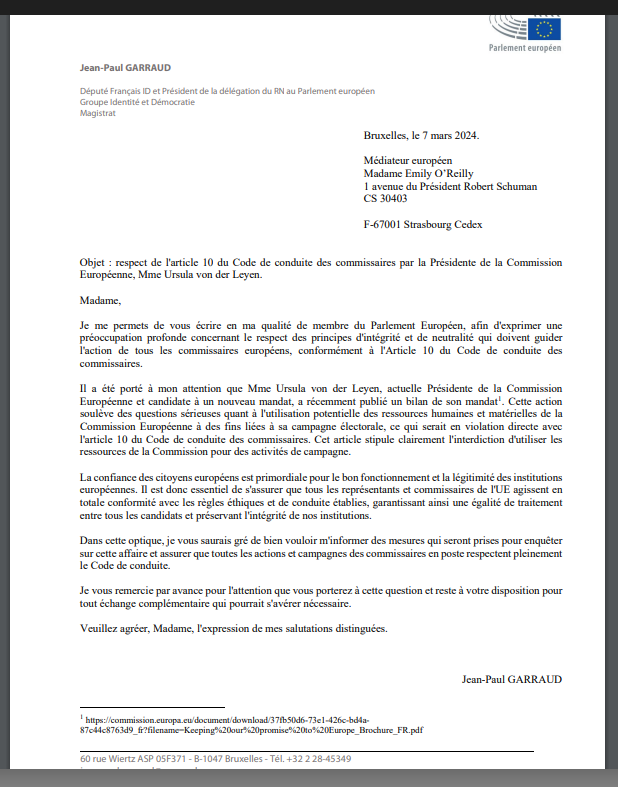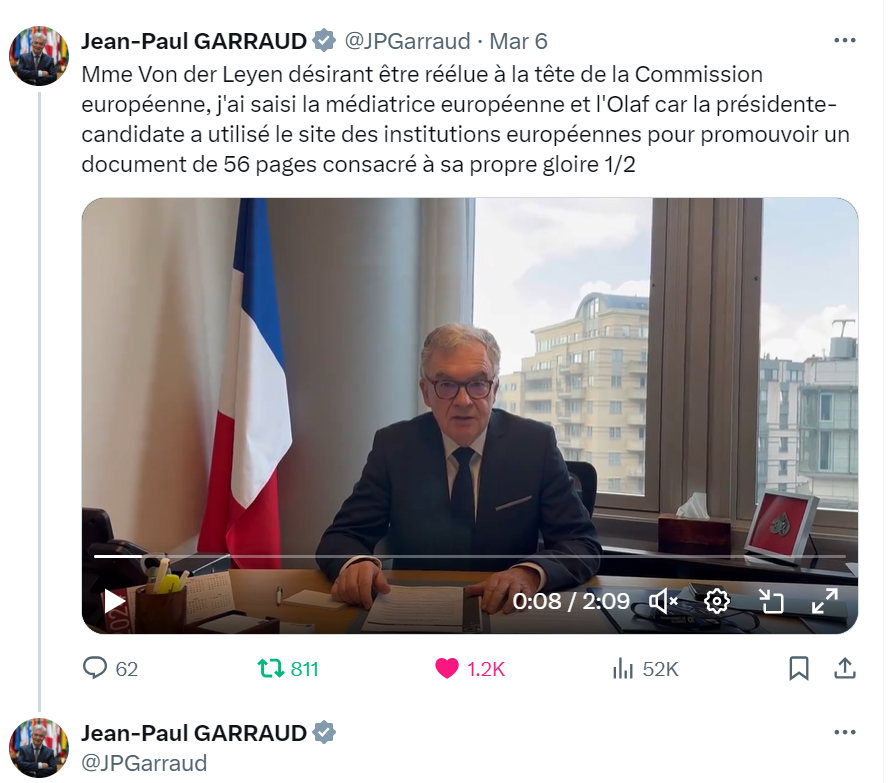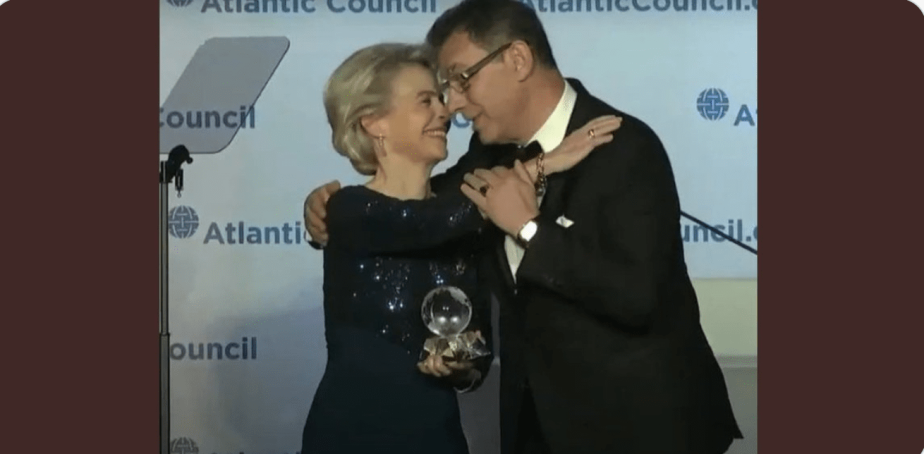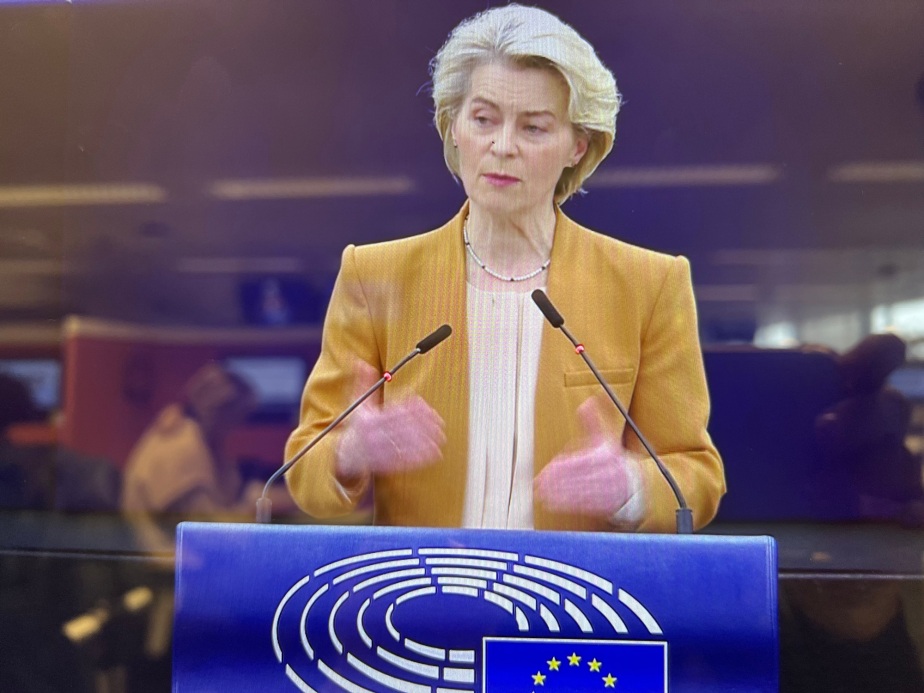Strasbourg 14.03.2024 Complaints against the President of the European Commission Ursula von der Leyen accumulate. This time the Member of the European Parliament joint the voices of discontent, pointing to her neglect of rules the EU institution is so eager to impose on others. Ursula von der Leyen start of the competition for the second mandate was marked with a “faux pas” or a misstep, evident to many. The EU top executive started to use the resources and possibilities at hand of her powerful position to engage in self-promotion for the second mandate.

However the reality showed the opposite, and on March 7 a complaint from a French Member of the European Parliament (MEP) Jean-Paul Garraud was filed to European Ombudsman Emily O’Reilly on non-compliance with the “article 10 of the Code of Conduct for Commissioners by the President of the Commission European, Mrs. Ursula von der Leyen”. As a MEP, but also as a professional jurist, Garraud expressed his “deep concern regarding respect for the principles of integrity and neutrality” which had to guide the action of all European commissioners, in accordance with Article 10 of the Code of Conduct of
commissioners, but clearly in case of Ursula von der Leyen was ignored. (The original of the letter above).
Apparently Ursula von der Leyen, incumbent President of the Commission European and candidate for a new mandate put forward by the European People’s party, recently published a glorious assessment of her mandate on the site of the European Commission.
This self-gratification raises serious questions about misusing of human and material resources of the European Commission for “purposes linked to its electoral campaign”, which would be in direct violation of Article 10 of the Code of Conduct for Commissioners. “This article clearly states the prohibition of using Commission resources for campaign activities”, Garraud underlines. Wishing to be re-elected at the head of the European Commission the president-candidate used the site of the European institutions to promote a 56-page document “devoted to her own glory” as MEP ironically remarked.

“The trust of European citizens is essential for the proper functioning and legitimacy of institutions
European. It is therefore essential to ensure that all EU representatives and commissioners act in accordance full compliance with established ethical and conduct rules, thus guaranteeing equal treatment
between all candidates and preserving the integrity of our institutions” the MEP continues.
The text of the complaint to OLAF (depicted) resumes in a request of the investigation of the matter to ensure that Ursula von der Leyen campaign for re-election is conducted within the frame of existing rules in full respect of the Code of Conduct.
Jean-Paul Garraud is a French politician who has raised to prominence in his status as an accomplished jurist. After a long and illustrious professional career within the French justice system, this native of Toulouse turned to political life. He earned his stripes in the UMP as a French deputy where he was distinguished for his work in the National Assembly as rapporteur of several significant bills.
Nowadays Commission President Ursula von der Leyen is being sued in the Belgian courts over controversial private text messages exchanged with Albert Bourla, CEO of pharmaceutical giant Pfizer. The President of the Commission stands accused of having acted subjectively, through private wheeling and dealing, without a mandate from the EU Member States. The Commission attempted to defend the boss while saying that the messages were deleted because they were deemed to be of a ‘short-lived and ephemeral nature’ and devoid of ‘important information relating to policies, activities and decisions of the Commission’. This attitude has disappointed many, demonstrating an absence of any inclination for co-operation.
In spite of the evident public concern the Commission explanations expose the serious lack of transparency surrounding these private negotiations, which led to a purchase of Pfizer products for an
amount of €35bn. The negotiations conducted via texts attracted also keen attention of the New York Times newspaper, which resulted in a lawsuit.
The request from the New York Times, the first media outlet to reveal the SMS affair in April 2021, was filed on January 25, 2023 and has been visible since February 13 on the public register of the Court of Justice of the European Communities . (Pictured with Albert Bourla)

One more similar lawsuit was filed by a Belgian activist who started legal action against Ursula von der Leyen for causing financial damage to the Belgian state by negotiating the joint procurement of COVID-19 vaccines by text messages, local media reported.
Frederic Baldan, a lobbyist officially accredited to EU institutions, sued von der Leyen for causing financial damage to the Belgian state when she secured a €35 billion ($38.4 billion) deal with pharma company Pfizer to buy 1.8 billion doses of COVID-19 vaccines for EU countries, Belgian weekly Le Vif reported.



